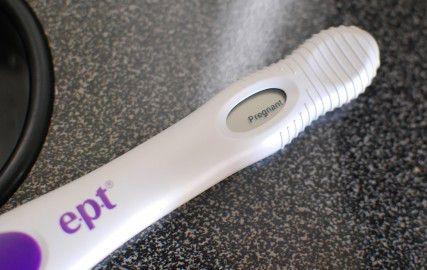
Professors from Boston University’s School of Public Health are using an online questionnaire to investigate factors that may cause infertility in women.
“We have a lot of experience conducting studies of fertility in Denmark and we wanted to conduct a similar study here in the United States,” said SPH professor and lead researcher Lauren Wise. “[We are] trying to identify risk factors for delayed conceptions as well as other pregnancy outcomes like pre-term birth, low birth rate and miscarriage.”
PRESTO, the largest internet-based infertility study in the United States, minimizes the inefficiencies associated with traditional epidemiological research methods, Wise said.
Wise said the study cuts back on costs associated with mailing questionnaires to and from participants.
Elizabeth Hatch, a SPH professor of epidemiology and co-investigator of the project, said she and Wise have worked on the Danish equivalent of the PRESTO project since 2007.
“We wanted to test this in Denmark because they have a fabulous system of health registries,” Hatch said. “Basically, they collect data on pretty much everything you can imagine. You can enroll someone as we’re doing using the Internet, and you get their personal ID number. We’re able to follow and do all these linkages with say, the outcomes of their babies or the health of their children later on.”
Wise believed employing this strategy in the United States would allow for aggregated data analysis and increased statistical significance, which lends a study more validity, she said.
“[We want] to combine data to make it a more powerful, informative study,” Wise said.
Participants in the study are asked questions about their medical history and lifestyle choices, such as diet and exercise, Wise said.
Every two months, participants are sent a shorter, follow-up questionnaire that asks for updated information about their lifestyle choices and state of pregnancy. The bimonthly questionnaires are sent until participants become pregnant or until 12 months have elapsed.
“Another motivation was testing out this novel methodology, which is to see if we can recruit and follow participants solely through the Internet,” Wise said. “In Denmark, it works well, and we’ve shown it to be very cost effective. So that was the other question: is it successful and cost effective in the United States or is it something that can only be conducted in European countries?”
The study, which was launched in July, currently has over 1,000 participants, Wise said. Wise and her colleagues said they hope to garner 2,500 couples between 21 and 45 years of age to participate in the study.
Wise said she is making an effort to reach minority populations.
“It’s actually much harder in fertility studies to enroll minority participants,” she said. “We try to show a different range of ethnic groups in the ads that we show. We also try to advertise in different venues.”
As an incentive for male participation, Wise is offering every one of 250 couples a chance to win an iPad Mini.
“Fertility is a couple-based outcome,” Wise said. “We can look at factors, for example Body Mass Index for women and men in a regression model. We can look at male’s obesity and control for female’s obesity.”
Kristen Hahn, a SPH graduate student and research fellow for the project, said the internet-based study could revolutionize public health research.
“Pretty much everyone now has some sort of internet presence,” Hahn said. “It makes data collection a lot easier than having to call or send out mail, and it’s cheaper. Hopefully we’ll be able to do just as high of quality research in a more cost-effective way because, obviously, funds are limited.”



















































































































